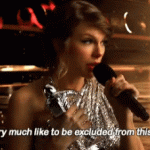Bad fans think morally condemnable characters are good and admirable. Are they wrong? Continue reading

September 8, 2022
by Aesthetics for Birds
1 Comment


September 8, 2022
by Aesthetics for Birds
1 Comment
Bad fans think morally condemnable characters are good and admirable. Are they wrong? Continue reading

February 11, 2022
by Aesthetics for Birds
0 comments
In making art, we make ourselves into something beyond what our original authors may have intended. Continue reading

June 5, 2020
by Alex King
0 comments
“The birth of the reader must be at the death of the author.” Continue reading
March 27, 2018
by Roy T Cook
0 comments
Frank Boardman interviewed by Roy Cook for AFB Frank Boardman is is a visiting assistant professor at Worcester State University. Most of his work has been in philosophy, art and rhetoric. He has a completely unwarranted belief that he could also write about parenting, technology or basketball.
April 18, 2017
by utahphilosoraptor
2 Comments
What follows is a guest post by Mary Beth Willard (Weber State University) When I last wrote about Fearless Girl, I observed that the meaning of the little Bull-challenging statue will lie in its interaction with the public, who for the moment has claimed it as an icon of feminism, capturing the vivacity of little girls at that tender age where they still dare to dream. Fearless Girl reportedly now has a permit through 2018, and this has angered none other than the creator of Charging Bull, Arturo di Modica, who has asked for Fearless Girl to be relocated, because it’s making his Bull into a villain.
January 10, 2017
by Alex King
2 Comments
I must alert you to an awesome piece by poet Sara Holbrook on HuffPo, where she explains that Texas used two of her poems for middle school standardized tests. Holbrook: receives an email from a distressed teacher who doesn’t understand the answers discovers poor formatting that adds to the confusion finds the questions in question cannot, ultimately, answer them The narration of her thought process going through the questions is also delightful. At one point, she writes: Parents, educators, legislators, readers of news reports: STOP TAKING THESE TEST RESULTS SERIOUSLY Idiotic, hair-splitting questions pertaining to nothing, insufficient training, profit-driven motives on the part of the testing companies, and test results that simply reveal the income and education level of the parents. All very fair. But then a bit of intentionalism to finish it all off! My final reflection is this: any test that questions the motivations of the author without asking the … Continue reading
February 18, 2016
by Aesthetics for Birds
0 comments
Artist Jörg Reckhenrich interviewed by Alex King Jörg is a Berlin-based artist. With an understanding of art – shaping the social space – he takes the creative principles to the world of organizations. Art, he believes, can open our eyes to understand that we are not moving forward to a goal, we are at the goal and changed with it.
March 16, 2014
by Aesthetics for Birds
0 comments
What follows is a guest post by Hans Maes. Hans is Senior Lecturer in History and Philosophy of Art and co-director of the Aesthetics Research Centre at the University of Kent. He has authored papers on a variety of topics in aesthetics, including the role of intention in the interpretation of art, the notion of free beauty, and the relation between art and pornography. The latter is the subject of two essay collections: Art and Pornography(co-edited with Jerrold Levinson, Oxford University Press, 2012) and Pornographic Art and The Aesthetics of Pornography (Palgrave MacMillan, 2013). I’m currently working on a book with the title “Conversations on Art and Aesthetics” set to appear with OUP in 2015*. The book is modeled after Alex Voorhoeve’s Conversations on Ethics and will contain interviews with a number of prominent aestheticians. Below is an excerpt from my 2011 interview with Jerrold Levinson. I thought it would be fun to include it … Continue reading
February 23, 2014
by Aesthetics for Birds
1 Comment
What follows is a guest post by Karen Glover Rightly or not, academic philosophy has a reputation for pursuing irresolvable debates about highly speculative questions, often with no material stakes or outcome. For some, this is proof of philosophy’s futility; for others, it points to the value of dialectic not in its utility, but as a worthwhile end in itself.